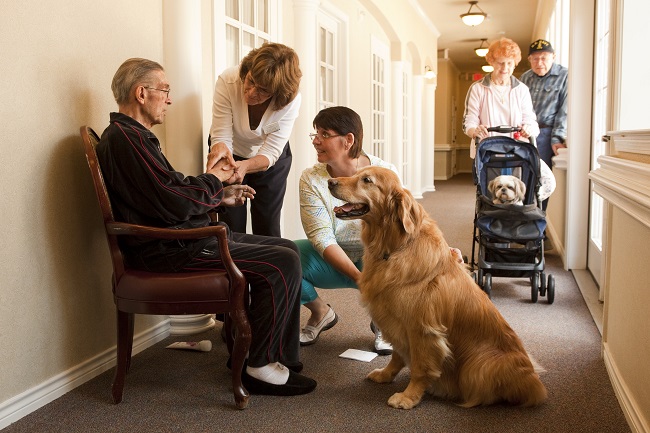
For most of us, Sunday, March 8, is simply the day when we set our clocks to “spring forward” to Daylight Savings Time. For those caring for someone with Alzheimer’s or dementia, however, that time change can trigger (or worsen) a behavior called “sundowning.”
Sundowning – a period of agitation, increased confusion or difficult behavior that occurs in the late afternoon or evening — affects an estimated 20% of people with Alzheimer’s. Those affected may become more forgetful, anxious or restless. They may pace the floor, wander, yell or become combative.
Caregivers at Autumn Leaves often notice a brief uptick in sundowning symptoms among residents in the days following a time change. The time change disrupts their daily routine, and once they adjust after a few days, things typically get back to normal.
The cause of sundowning isn’t clear. Some researchers suspect that the “plaques and tangles” that develop in the brains of people with Alzheimer’s may also affect the body’s internal clock. People with dementia may become fatigued by their inability to process information; by late afternoon, they’re exhausted and irritable. Or, a person who has stayed indoors and inactive all day may end up restless by afternoon.
At Autumn Leaves of Flower Mound, a memory care community, many aspects of daily life are geared toward reducing sundowning.
“Our building features abundant natural light, which may help “reset” residents’ biological clocks,” said Jerri Johnston, Director of Sales & Marketing at Autumn Leaves of Flower Mound. “Residents are invited to exercise and enjoy a variety of activities each day. That keeps them active and thus more likely to wind down in the afternoon and sleep at night.” The community maintains a familiar, daily routine, which helps calm residents, and caregivers are trained to notice and manage sundowning symptoms if they occur.
If you are caring for someone who exhibits “sundowning” behavior, Johnston advises, try to stay as patient as you can. Look for signs that the person might be experiencing pain, hunger or thirst. Try to remove any excessive noise or clutter that might add to the person’s agitation. If these steps don’t help, talk with your doctor.
Autumn Leaves is staffed with caregivers trained to provide compassionate care to those with memory loss. For more information, visit Autumn Leaves of Flower Mound at 3201 Karnes Road, or call Jerri Johnston at 972-355-5432.
This content is provided by a sponsor of The Cross Timbers Gazette.







.jpg)






